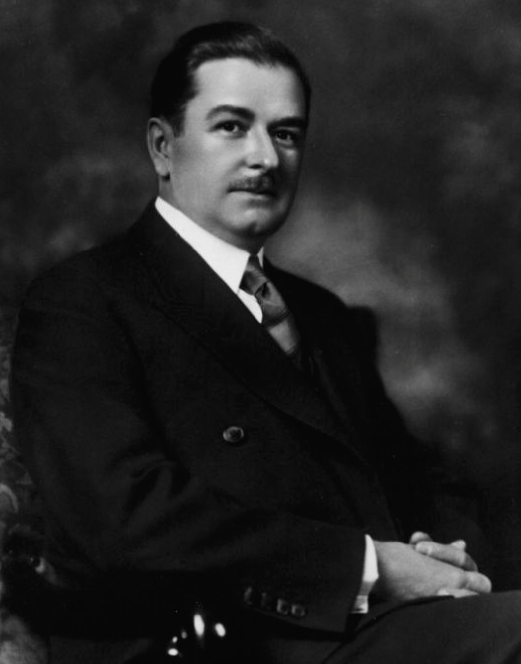Let’s pick up the story in the 1950s. At this point Canada has become an independent country, having won internal self-government in the late 19th century and claimed diplomatic independence in the 20th century.
Quebec in the ’50s was the domain of one Maurice Duplessis, a Machine-style politician who, in the words of historian Roger Riendeau, “governed Quebec as a feudal lord rules over his fiefdom.”
Duplessis’ Quebec comes across as faintly reminiscent of Batista’s Cuba. Duplessis was a conservative who stoked populist discontent at external interference, whilst he simultaneously appeased the externally-owned corporations which dominated Quebec’s economy by fiercely suppressing trade unions, communists, and other undesirables. His base was predominantly rural. Duplessis was allied to the Catholic church, still a powerful force in the province, and he championed the continuation of the church’s traditional role as provider of education and social services, against increasing pressure for the government to take responsibility for schools and social welfare.

In some sense Duplessis was fighting back the inevitable. French Catholics were pouring from the country into the metropolis of Montreal and other cities, leaving behind family farms and seeking jobs in factories and offices. There, many found themselves on the wrong side of a lingual divide. Wealth and commerce was concentrated in the hands of rich Anglophone mercantile families, or American- and British-owned corporations. Although a majority of Quebecers were French speakers, the language of business and commerce was overwhelmingly English. Monolingual Francophones were effectively second-class economic citizens.
Une révolution tranquille
After Duplessis’ death in 1959, Quebec was swept by the ‘Quiet Revolution,’ a rapid and profound seachange in laws and mores. The incoming Liberal party reversed the pro-clerical, anti-union stance of the Union Nationale. The government took over social services from the church, and took control of a significant fraction of the province’s bountiful and underutilized natural resources. Within a decade, Quebec looked much closer to the highly secularized, left-of-centre society visible today.
The Quiet Revolution ushered in a strain of assertivism which has remained a dominant force in Quebec politics ever since. The key issue was twofold: to attain and secure economic equality for Francophones; and to assure the long-term viability of French Quebecois culture in North America. Separatism and federalism emerged as two diametrically opposed approaches to the same problem.
Federalists sought to convince Quebecers that their concerns could be met within the existing Canadian framework. Federalism’s early champion was Pierre Trudeau, elected as Prime Minister in 1968. Trudeau pushed through laws implementing French and English as joint official languages of the federal government. Trudeau’s ‘concessions’ were unpopular in Anglo-majority provinces (the ‘ROC’) but unsatisfactory within Quebec, a dynamic which has subsequently plagued the federalist approach.
Separatists held that Quebec could only achieve its aims as an independent state. In response to Trudeau’s perceived failure, separatism grew into a mainstream movement. The newly-merged Parti Québécois won 1/4 of the popular vote in 1970 provincial elections, and a governing majority for the first time in 1976. The next year the PQ introduced the Charte de la langue française, or ‘Loi 101’ for short, which enshrined French as the sole official language of the province, a blunt rebuke to Trudeau’s bilingualist doctrine. This inaugurated the Quebec government’s fiercely interventionist approach to language usage, one of the most controversial issues in Quebec-ROC relations.
In the next post I’ll dig further into the subject of language, and try to explain why and how it sits at the core of the independence debate.

2 thoughts on “Separatism in Quebec – part 2”
Comments are closed.